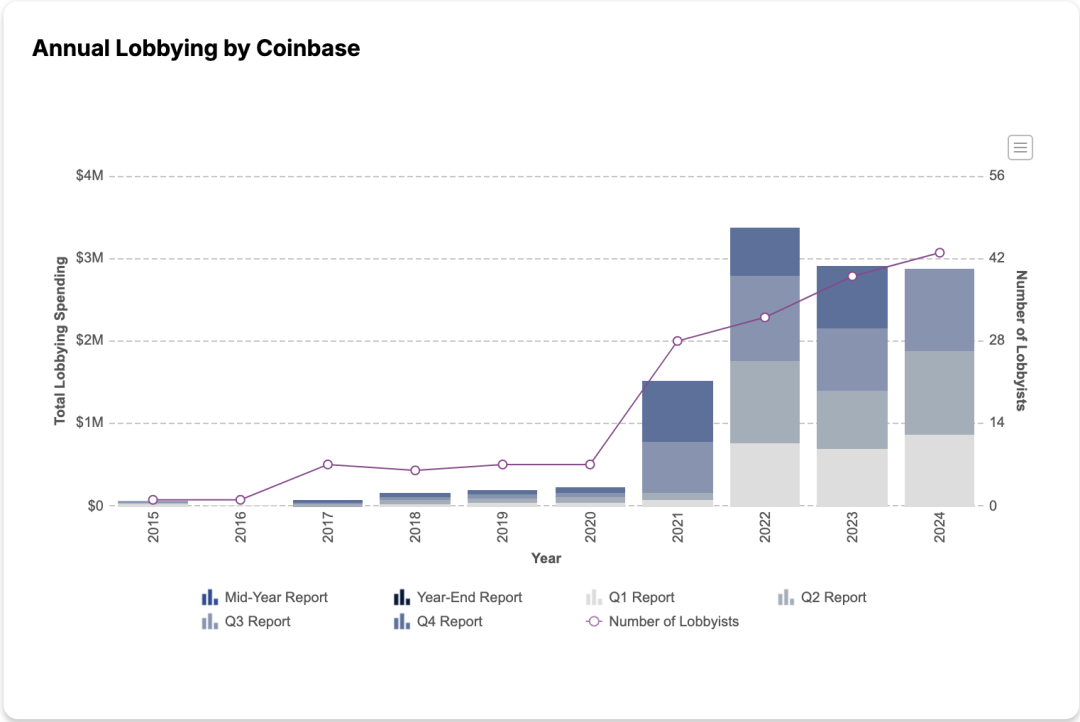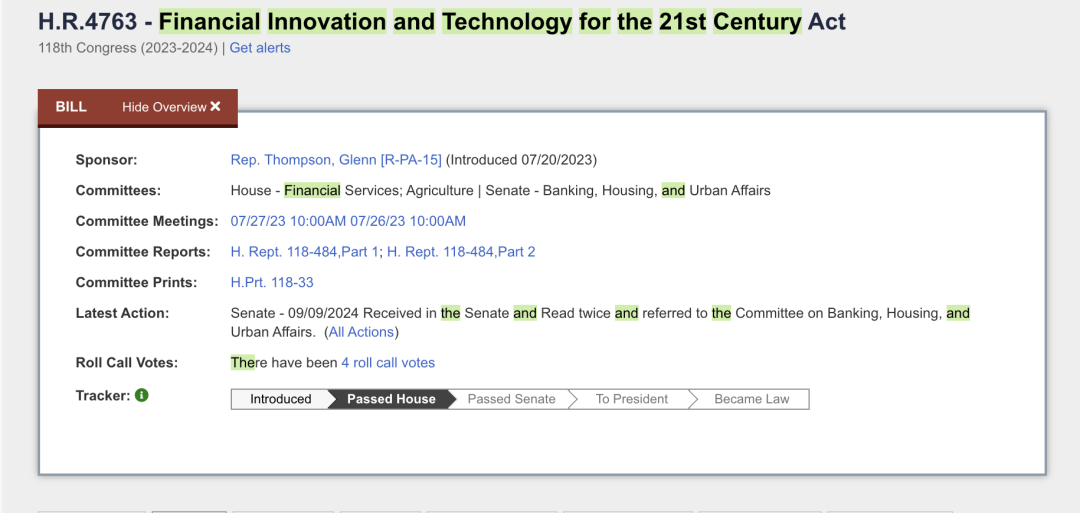Author: Zao Ye

If you are amazed by Trump's victory, then revisiting the story of Alexander will calm us down, rather than indulging in the sadness of the decline of Athenian democracy.
In 338 BC, Alexander the Great defeated the allied army of the Greek city-states at the Battle of Chaeronea, and then swept the world, initiating the process of Hellenization worldwide. For example, the Gandhara region under his influence developed exquisite Buddhist sculpture art, and the Gandhara style later profoundly influenced the stone carving art of China's grottoes. The world has gone through twists and turns, but it has always been in connection and development.
Crypto-Americanization, the rule of law is in progress
Now, Trump has a monopoly on the Republican Party, the media (Musk), the executive, legislative, and judicial branches, and will be a solo dance in the next two years, and the crypto industry's generous sponsorship of $135 million in the recent elections will undoubtedly reap huge returns on Trump.
In contrast, what will become of Dubai, Singapore and Hong Kong, these city-states? The global regulatory storm against crypto exchanges, starting with high leverage and tax issues in 2022, reached a climax after the FTX collapse, and finally ended with CZ paying fines, imprisonment, and industry bans.
BN's choice is global arbitrage, from mainland China, Japan, Singapore, to France and the UAE, where my heart is at home.
CB's approach is to take the initiative, from hiring Chris Lehane for lobbying to following up with the FairShake PAC to support crypto-friendly candidates, what cannot be killed will only make me stronger.

Caption: CB's lobbying expenses
Source: https://www.opensecrets.org
But Trump's ascent is not the end of chaos, nor is it the establishment of a new order.
In fact, Rome was not built in a day. After the FTX collapse in 2022, the crypto industry actively began to save itself, with industry leaders like Coinbase, a16z, and Ripple taking the initiative, and the graph also shows that 2022 was the peak of spending.
From the overall political structure of the United States, crypto has approached full legalization, not just the legalization of exchanges, stablecoins, public chains, and token issuance, but the subsequent regulation and legal framework, specifically, the overall thinking has taken shape.
Congress -- FIT21 Act
Regulation -- Shift from SEC to CFTC
Executive -- Trump plans to use Bitcoin as a strategic reserve, not issue CBDC, and pardon the Silk Road founder

Caption: FIT21 Act
Source: https://www.congress.gov
The FIT21 Act (Financial Innovation and Technology Act of the 21st Century) is the overall framework for these changes, passed in the House in May, and given the absolute Republican majority in the Senate under Trump, the day when it becomes law is not far away.
Under the FIT21 framework, the main thing is to distinguish between digital assets and digital commodities, and to delineate the powers and responsibilities of the SEC and CFTC.
Digital assets are under the jurisdiction of the SEC;
Digital commodities are under the jurisdiction of the CFTC.
For example, ETH, as a necessary item to maintain the operation of Ethereum, clearly has practical value and should be classified as a "digital commodity" and can be regulated by the CFTC (Commodity Futures Trading Commission), a view even SEC Chairman Gary Gensler agrees with.
While the issuance of some tokens is for fundraising (IXO), and their holders and issuers are only for the expected returns of the tokens, without actual value in the public chain or products, they will be defined as digital assets and should be classified under the SEC, essentially being treated as securities issuance.
There are also relevant compliance requirements for stablecoins and intermediaries, but after the division of responsibilities between the SEC and CFTC, token issuance will actually become legally based, as long as the tokens can prove their actual use and value, they can avoid Gary Gensler's "harassment", and a clearing mechanism will also be established in the market to eliminate fraudulent projects.
Although Gary Gensler openly opposes this bill, it can be assured that his term is already in the countdown, as Trump has announced that he will Fire him on the first day of his election.
In Trump's view, Bitcoin or crypto in a broader sense is one of the choices to solve the debt crisis, at least a partial choice, and in a broader sense, he will recognize crypto from the level of American politics, corresponding to which crypto has expressed its support or control for him in advance.
We can set up an observation point based on this: If large-scale crypto advertising (apart from Trump, very few of the supporters directly mention crypto) and exchanges can reappear in the discussion space of American political life, then crypto-Americanization will be fully formed.
City-states cannot be arbitraged, big countries have no cracks
"Leeches" are part of Ethereum, like barnacles on sea turtles, and people even accept this as part of the ecosystem, but they have never thought of an ecosystem without parasites.
We list the names of the following three countries or regions:
Cayman Islands, British Virgin Islands
Dubai, Singapore and Hong Kong
Vietnam, Morocco and Mexico
If you are active in the venture capital circle, crypto circle or overseas circle, the common feature of the above countries or regions is that they have actually undertaken the role of cross-chain bridges between the East and the West, for example, after the outbreak of the Russia-Ukraine war, the elites of both sides gathered in Dubai, as if the distant killing and bloodshed had not occurred, nor were they related to their sources and flows of funds.
But with Trump's limited return, all this will change, only in the form of de-globalization to entangle interactions around the world, and the need to dismantle the myriad of connections in order to ensure unity of action.
And between Dubai, Singapore and Hong Kong, the crypto can be summarized as exchanges and stablecoins, with the exchange competition basically over, Hong Kong leaving Hashkey and OSL as "truly compliant" exchanges, while Dubai has taken in many global exchanges like BN/OK/Bybit that could not apply for Hong Kong licenses.
Dubai: The Middle East Peace Hotel
When the SEC was frantically chasing Ripple, Ripple had said it would take itself to Dubai to reduce America's global competitiveness, a familiar tactic repeatedly used by companies like Coinbase and a16z, and the eventual winner will have the legitimate power to reset the agenda.
Specifically, Dubai is more focused on the exchange business, with a regulatory framework under VASP (Virtual Asset Service Providers), different from the SEC and CFTC division, Dubai has chosen to custom-design a new regulatory system for the crypto industry, but please don't take it too seriously, because FTX also once obtained this license, and only quietly withdrew it after the incident, proving that no one can regulate the black box.
More interestingly, USDT has already penetrated oil trading, completing the first $45 million oil trade finance support last month, but note that it is not the direct buyers and sellers using USDT for the transaction, this opens up a new market beyond traditional crypto trading, which is worth encouraging.
Tether's other gesture of goodwill is to cooperate with local companies to issue a stablecoin pegged to the AED (UAE Dirham) in accordance with the regulations of the Central Bank of the UAE, and it falls on TON, while Telegram is fleeing to Dubai after fleeing Russia, and the Central Bank of the UAE has also issued special regulations for stablecoins, making all crazy behaviors have a legal basis, getting on the bus first and then buying a ticket, as long as it can bring profits to the local area, everything is welcome.
But this is not as good as the above-mentioned, Dubai or the UAE is still a peripheral obedient to the West, CZ, although residing in the UAE, still chooses to go to the United States to settle the lawsuit, even though the UAE is not on the list of 100 extradition treaties signed by the United States.
Also, Telegram founder Nikolai Durov, who holds multiple nationalities including the UAE, will still be arrested by France. All of the above shows that although Dubai can shelter you from the wind and rain, its capabilities are limited, and the core still depends on oneself.
Singapore: A Gentle Haven for the Chinese
Compared to the exotic feel of Dubai, Singapore, which is an 8-hour flight south of Beijing, is obviously closer to Shenzhen and Fujian. More than 200 years of going to the South Seas have created a large overseas Chinese community, such as Justin Sun, who, after being investigated by the FBI, chose Singapore as his first choice for escape, as it is close to China but far from the United States. But it can also be said that compared to Dubai, Singapore is more suitable for making a living by getting close to the mainland.
After the FTX collapse, Singapore's Temasek, as an investor, has also conducted a review, and the government's policies on cryptocurrencies are also more cautious, but this does not affect the grand scale of Token 2049 and the stunning concept of PayFi at Solana Break Point.
In addition, DBS (DBS Bank), Singapore's largest bank, has not given up on following the cryptocurrency industry, the most important of which is the issuance of USDG (Global Dollar). As the dollar reserve management bank, DBS, with Paxos responsible for the issuance, where Paxos is the former issuer of BUSD, has already obtained the MPI (Major Payment Institution License) from the MAS (Monetary Authority of Singapore) in 2022, and the same license holders include Alibaba and Coinbase.
The current cooperation to issue USDG is an important attempt after the launch of the MAS 2023 stablecoin regulatory framework, and the localized US dollar compliant stablecoin will not be a competitor to USDT for the time being, but it points to the direction of the future.
In general, Dubai and Singapore are interchangeable, and it is difficult to say which is better, but in terms of the comfort of Chinese living, the 300,000 in Dubai cannot be compared to the 4 million in Singapore.
Hong Kong: The Dilemma of True Compliance
The biggest difference between Hong Kong and Singapore, Dubai is the long history of the Hong Kong Stock Exchange, but in the current situation where mainland technology stocks are weak and the overseas appeal is declining, Hong Kong's cryptocurrency policy has always been unable to make big strides forward.
Although it has closely followed the United States and approved BTC/ETH spot ETFs, its flow and scale are completely unable to match the US ETFs.

Image caption: Hong Kong BTC spot ETF data
Image source:
https://sosovalue.com/zh/assets/etf/hk-btc-spot
As for Hong Kong's exchange policies, due to the implementation of a "true compliance" policy different from Dubai, such as requiring exchanges registered in Hong Kong to exclude mainland customers, it is obvious that major exchanges choose the latter between compliance and profits, although they will be in a gray area in the long run, but Marx has already given the answer, as long as the profits are high enough, capitalists do not mind selling their own gallows, and this is a complete victory for Hayek.
In terms of stablecoins, Hong Kong's approach is still to cooperate with large companies, such as JD.com, but the problem is that although they can operate in compliance, under the current market structure, they are completely unable to open up new scenarios, resulting in an inability to make a move.
Welcome to the New Era
Comparing the various policies of the above three places, exchange compliance cannot be operated globally, and the fragmented liquidity is unacceptable to any enterprise, so Hashkey Global, Coinbase Global have come to the fore, after all, compliance cannot be eaten as food, and business is the way of the world.
The neoliberal globalization that began in the 1980s is about to end, and regionalization will be the mainstream, just like Singapore's regional stablecoin, Dubai's local compliance licenses, and Hong Kong's non-mainland user exchanges, everyone is putting it into practice.
But in Trump's layout, not only China will be targeted, he will equally sow hatred to all non-American economic entities, American First is not sentimental, and there is no common value under MAGA.
In Trump's plan, the 15% corporate tax is a necessary economic reform, and this is an important bargaining chip for Ireland and other countries to attract US investment into Europe. In his first term, due to the strong lobbying power of large companies, this plan was not implemented globally, and now is the time to end all this.
If the prices are all unified, then obviously the United States has an advantage, Trump said.
In short, the confrontation between major powers in the world will return to hard power such as industry and high-tech, leaving less and less room for maneuvering for the small giants, and they may even compete with each other, the competition in the era of stock will be extremely cruel, and cryptocurrencies are also the only surviving global industry, in this sense, cryptocurrencies are also an important symbol of connecting the world.







